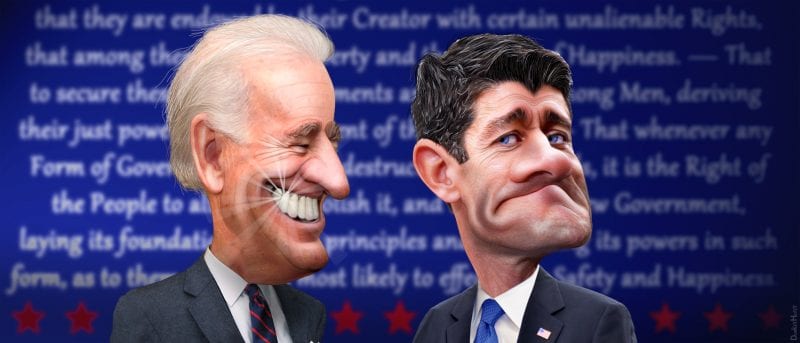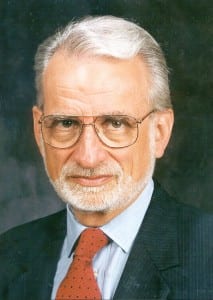THE DUOPOLY WATCH | Steven Jonas, MD, MPH
Special to The Greanville Post | Commentary No. 2
| This new feature for The Greanville Post will focus substantively on the structure and function of the state apparatus in the United States and of course on the two political parties which compete for control of that state apparatus. By “state apparatus” is meant all of the institutions, executive, legislative, and judicial, including both the civil and police/military agencies, used for social control, management, and operations in both the “public” and “private” sectors of the economy, that exist in a particular nation. In the United States, the two parties, Democratic and Republican, compete for control of the state apparatus within certain limits of course, because both parties serve the interests of the ruling class of the U.S. capitalist enterprise. They just offer variations on how to best serve those interests. |
It is important to understand that the state apparatus never exists independently of the economic system of the country within which it stands. Rather it is there to make sure that it, the economic system, stays firmly in place. The disagreements between political parties in the capitalist nations come over how best to go about maintaining the ruling class’s control, the ruling class being those individuals, corporations, organizations, and interests that have their hands on the levers of economic [and consequently political] power in the nation.
Concerning the nature of “constitutional democracy” under capitalism, Ulyanov himself put it this way:
“To decide once every few years which member of the ruling class is to repress and crush the people through parliament – this is the real essence of bourgeois parliamentarism, not only in parliamentary-constitutional monarchies, but also in the most democratic republics” .

Lenin at his desk. An encyclopedic reader, and disciplined thinker who strove for grounding every conclusion in the ultimate, incontrovertible reality of events, his insights into the nature of the bourgeois state have not lost their power to explain contemporary history.
In the United States, as in most developed capitalist nations today, there is a dominant Political Duopoly. Indeed the Democrats and the Republicans do have significant policy differences, but those policy differences are over the question of how to best preserve, protect, and expand capitalism, just as Ulyanov said above. There are also some very significant differences within each of the two major parties about policy and about how they should go about gaining and keeping the levers of power, especially in a nation that has such an incredibly complex system of government. It is complex at the Federal level, with the three supposedly equal branches of government, and it is complex because of the distribution of power and sovereignty between the Federal government and the states. The nature of both distributions has been the subject of constant conflict since the founding the nation in 1789. But again, those conflicts are never over the question of: “might there not be a better system of control of the productive resources in our society that could benefit everyone, not just for the most part those who happen to own the bulk of them.”

Congressional players Joe Biden and Paul Ryan: at the end of the day bosom buddies in what is in essence a bipartisan project. (DonkeyHotey, flickr)
I am looking forward very much to this undertaking and I thank my friend, comrade, and (too [!]), Editor/Publisher, Patrice Greanville for providing me with this opportunity. It is going to be a fun ride (fun in the sense of having the opportunity to engage in such analyses on an ongoing basis) and I look forward to having you join me for it, at least from time-to-time.
ABOUT THE AUTHOR
[box] Senior Editor, Politics, Steven Jonas, MD, MPH is a Professor Emeritus of Preventive Medicine at Stony Brook University (NY) and author/co-author/editor/co-editor of over 30 books. In addition to his role with The Greanville Post, he is a Contributor for American Politics to The Planetary Movement, a columnist for BuzzFlash@Truthout, a “Trusted Author” for OpEdNews, and the Editorial Director of and a Contributing Author to The Political Junkies for Progressive Democracy. Dr. Jonas’ latest book is The 15% Solution: How the Republican Religious Right Took Control of the U.S., 1981-2022: A futuristic Novel, Brewster, NY, Trepper & Katz Impact Books, Punto Press Publishing, 2013, http://www.puntopress.com/jonas-the-15-solution-hits-main-distribution/, and available on Amazon. [/box]
[printfriendly]




